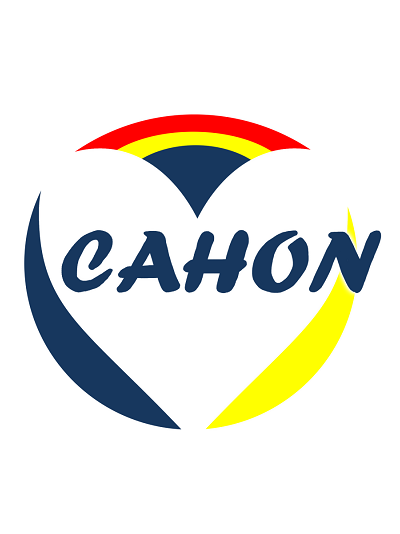靶向CD276的适配器car - t细胞为小细胞肺癌提供了一种新的治疗策略,并可预防CD276依赖性的兄弟姐妹杀
IF 40.4
1区 医学
Q1 HEMATOLOGY
引用次数: 0
摘要
小细胞肺癌(SCLC)的生存率仍然很低,对新疗法提出了巨大的医学需求。表达嵌合抗原受体(CAR-T)的t细胞已被证明具有抗多种血液系统恶性肿瘤的临床活性。然而,对实体肿瘤实体的疗效仍然有限。在这项研究中,我们研究了CD276 (B7-H3)在RNA和蛋白质水平上的表达,CD276是一种免疫检查点分子,也是CAR-T治疗SCLC的有希望的靶抗原。我们进一步开发了新的基于fab的靶向CD276的适配器分子(AM),并优化了我们之前建立的模块化适配器CAR-T (AdCAR-T)平台以及AM给药方案。CD276在SCLC亚型中广泛表达,代表着CAR-T治疗的一个有希望的靶点。我们描述了t细胞激活和car信号传导诱导CAR-T上cd276的表达,导致cd276依赖性的杀兄弟性,限制了抗cd276 -CAR-T的扩增和活性。AdCAR-T平台允许CAR-T在缺乏CD276靶向的情况下进行扩增。新型靶向CD276的AMs在体外和体内对SCLC具有有效的活性。与靶向cd276的传统CAR-T相比,间歇性am给药允许AdCAR-T在体内的功能持久性。通过在AdCAR-T设计中引入激活诱导的AM遥控IL-18分泌,进一步促进AdCAR-T在体内的扩增和活性。我们发现CD276是一个有希望的靶抗原,在SCLC中均匀表达,并证明了新型抗CD276 Fab-based AM与优化的IL-18装甲AdCAR-T联合的治疗潜力。本文章由计算机程序翻译,如有差异,请以英文原文为准。
Targeting CD276 with Adapter-CAR T-cells provides a novel therapeutic strategy in small cell lung cancer and prevents CD276-dependent fratricide
Survival rates in Small Cell Lung Cancer (SCLC) remain dismal, posing a huge medical need for novel therapies. T-cells, engineered to express chimeric antigen receptors (CAR-T) have demonstrated clinical activity against a variety of haematological malignancies. Yet, efficacy against solid tumour entities remains limited. In this study, we investigated the expression of CD276 (B7-H3), an immune checkpoint molecule and promising target antigen for CAR-T therapy in SCLC, at the RNA and protein level. We further developed novel Fab-based adapter molecules (AM) targeting CD276 and optimized our previously established modular Adapter CAR-T (AdCAR-T) platform as well as AM dosing schemes. CD276 is broadly expressed across SCLC subtypes, representing a promising target for CAR-T therapy. We describe that T-cell activation and CAR-signalling induces CD276-expression on CAR-T, resulting in CD276-dependent fratricide, limiting anti-CD276-CAR-T expansion and activity. The AdCAR-T platform allows CAR-T expansion in absence of CD276 targeting. Novel CD276 targeted AMs demonstrate potent in vitro and in vivo activity against SCLC. Intermittent AM-dosing allows functional persistence of AdCAR-T in vivo in contrast to CD276-targeted conventional CAR-T. AdCAR-T in vivo expansion and activity is further promoted by introducing activation-induced, AM remote controlled, IL-18 secretion into the AdCAR-T design. We identified CD276 as a promising target antigen, uniformly expressed in SCLC and demonstrate the therapeutic potential of novel anti-CD276 Fab-based AM in combination with optimized, IL-18 armoured AdCAR-T.
求助全文
通过发布文献求助,成功后即可免费获取论文全文。
去求助
来源期刊
CiteScore
48.10
自引率
2.10%
发文量
169
审稿时长
6-12 weeks
期刊介绍:
The Journal of Hematology & Oncology, an open-access journal, publishes high-quality research covering all aspects of hematology and oncology, including reviews and research highlights on "hot topics" by leading experts.
Given the close relationship and rapid evolution of hematology and oncology, the journal aims to meet the demand for a dedicated platform for publishing discoveries from both fields. It serves as an international platform for sharing laboratory and clinical findings among laboratory scientists, physician scientists, hematologists, and oncologists in an open-access format. With a rapid turnaround time from submission to publication, the journal facilitates real-time sharing of knowledge and new successes.

 求助内容:
求助内容: 应助结果提醒方式:
应助结果提醒方式:


